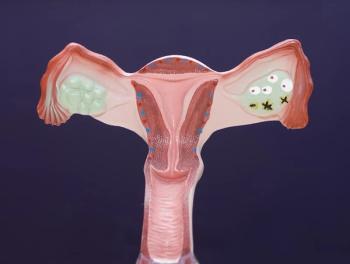
Miami Breast Cancer Conference® Abstracts Supplement
- 40th Annual Miami Breast Cancer Conference® - Abstracts
- Volume 37
- Issue suppl 4
- Pages: 16-17
13 Improved Sensitivity in Identification of ER- and HER2- Expressing Metastatic Breast Cancers With a Combination of Cell & Cell-Free Liquid Biopsy Analysis
Background
Liquid biopsies are a noninvasive diagnostic approach for detecting circulating tumor cells (CTCs) or circulating tumor DNA (ctDNA) that may provide clinically actionable information to guide treatment decisions for metastatic breast cancer (MBC) patients when a conventional biopsy is otherwise infeasible. In addition, the development of HER2 and ER assays is expected to enable the identification of HER2-expressing MBC that may benefit from novel HER2-targeted therapies. Here we report a comprehensive liquid biopsy platform including immunofluorescent HER2 and ER protein expression in CTCs (ctcIF) coupled with the determination of ERBB2 amplification by single-cell CTC genomics (ctcDNA), and ctDNA alterations in plasma.
Materials and Methods
Blood samples from 247 metastatic breast cancer patients were collected for cell and cell-free DNA analysis. Blood was also collected from 25 blood donors (HDs) with no known cancer history as controls. After plasma isolation, nucleated cells were plated, and slides were bio-banked. Immunofluorescent staining and subsequent imaging were performed on replicate slides. CTCs were identified using Epic Sciences digital imaging and machine-learning algorithms. Single-cell CTC isolation and sequencing for genomic quantification of large-scale state transitions (LSTs) and ERBB2 Copy Number Variants (CNV) were used to determine genomic instability and ERBB2amp in individual CTCs. Bio-banked plasma was analyzed to detect ctDNA alterations with high clinical relevance (Class IA).
Results
ctcDNA genomics were more sensitive than ctDNA in detecting ERBB2amp in MBC patients (15%, and 2%, respectively). A liquid biopsy classification of HER2 status by combining the three platforms (ctcIF, ctcDNA, and ctDNA) identified that among MBC), 15% had HER2 amplified status (ERBB2amp), 51% had both ER protein expression, and HER2 protein expressing CTCs (ERexp, HER2exp and ERBB2nonamp), 13% were ER expressing and HER2 nonexpressing CTCs (ERexp, HER2nonexp and ERBB2nonamp), 13% were ER nonexpressing and HER2 expressing CTCs (ERnonexp, HER2exp and ERBB2nonamp), 7% were neither ER nor HER2 protein expressing CTCs (ERnonexp, HER2nonexp, and ERBB2nonamp).
Conclusions
This liquid biopsy platform integrates comprehensive CTC analysis and ctDNA to report HER2 and ER status with high specificity and sensitivity in MBC patients. ctcDNA single-cell genomics is more sensitive than ctDNA at detecting ERBB2amp. This platform has potential clinical utility in selecting appropriate treatments for MBC without a tissue biopsy and/or in later lines of therapy among often biologically heterogeneous tumor sites of metastatic disease.
AFFILIATIONS:
Giuseppe Di Caro,1 Ernest Lam,1 Kandra Horne,1 Stefan Gluck,1 Megan Slade,1 Rick Wenstrup,1 Lee Schwartzberg2
1Epic Sciences, San Diego, CA.
2Medical Oncology and Hematology, Renown Institute for Cancer, University of Nevada, Reno, NV.
Articles in this issue
Newsletter
Stay up to date on recent advances in the multidisciplinary approach to cancer.




































